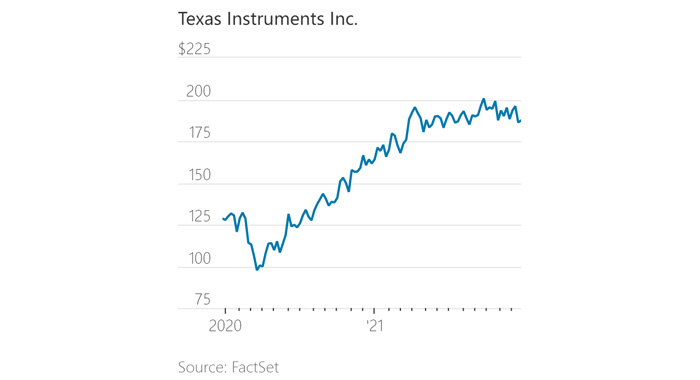Review to 2021, the biggest challenge for the semiconductor industry is the shortage of chips. According to the Wall Street Journal, the problems of the semiconductor supply chain this year extend from consumer electronics to all electronic components of automotive, especially analog chips. The world’s leading manufacturers include ADI, Texas Instruments, STMicroelectronics, and Infineon, among which Texas Instruments is worthy of attention. In the context of the chip shortage, the market cap of TI soared to 170 billion U.S. dollars, and revenues in multiple quarters achieved double-digit percentage growth. Driven by the growth of the automotive, consumer electronics, and industrial markets, the third-quarter revenue increased by 22% year on year to US$4.643 billion.

In the consumer electronics industry, Apple should feel deeply. Some time ago, the release of the iPhone 13 was affected by the chip shortage. Apple CEO Cook said iPhone and other consumer electronic devices are in short supply due to the chip shortage, and the sales gap is as high as several billion U.S. dollars. The well-known computer manufacturer Asustek is also affected by the shortage of analog chips that manage battery energy efficiency or amplify sound effects. The shortage of chips from Texas Instruments is one of the main factors.
According to the market situation, many IC shortages have been alleviated. However, the PMIC shortage and price increases of Texas Instruments are still quite serious, and the quotations have only risen but not fallen.
TI has more than 100,000 products, covering all products from processors, microcontrollers, wireless, to ADC/DAC, providing customers with all-around solutions. Analog chip is the largest source of income of TI, accounting for 71% of the total income. In the global analog chip market, TI accounts for 17% to 20% and ranks first.
In 1996, TI comprehensively transformed and developed the analog chip business. In order to enhance and expand its product advantage of power management line, TI acquired Unitrode (Engaged in the development of power pulse width modulation technology) and Power Trends in 1999. In 2011, TI surpassed STM to rank first in analog chips, and then remained the leader for 10 years. In 2012, TI focused its business on the automotive and industrial fields. Despite missing the era of smartphones and computers, TI has chosen another right field and stayed at the top.